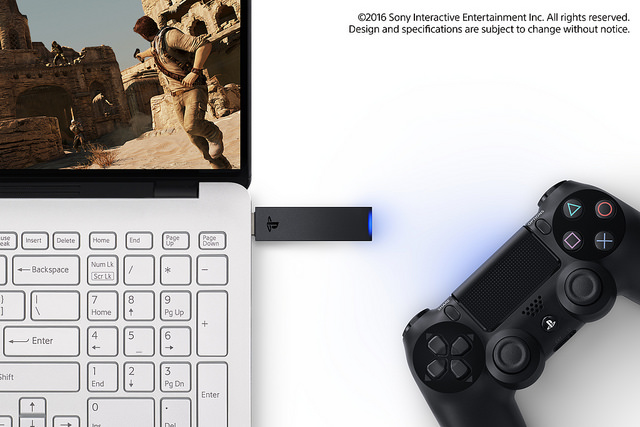It’s as if someone has flicked the switch this year in the minds of Microsoft and Sony. It used to be that console manufacturers would focus on getting as many people on their own platform as possible. This meant drawing in people from every other market to theirs. This is fine in principle. The problem is that in practice, consumers are not homogeneous in this way. There are plenty of people for whom a certain product line will not work, and so they never become potential consumers of that product.
It used to be that console companies would entice PC gamers to their platform. After all, a PC is a separate platform for playing games, and that’s people that the company would want playing on their consoles instead. But, in the same way that you aren’t going to convince people to give up a mobile phone in favour of a console, you also won’t convince heavy PC users to drop the PC and come and play on consoles. In economic parlance, the two are not perfect substitutes for each other. In fact, they may actually be complementary.
Microsoft seemed to catch on first. They’ve always been partly invested in the PC gaming space, purely by virtue of the fact that they produce the dominant operating system for desktop computers, and most games are therefore developed with this operating system in mind. Before the Xbox One, they seemed perfectly happy treating the console space in the same way that every other console company did. A market of people that they wanted to pull towards their console rather than their competitors. With the Xbox One, they appear to have acknowledged a complementarity. Windows 10 integration has become their ‘thing’ these days.
Over the past year, Microsoft have announced their commitment to making Xbox titles into Universal Windows Platform (UWP) applications that run on both Windows 10 and the Xbox One. They’ve given a nod to users of other Windows devices by giving Bluetooth to the new controller that shipped with the Xbox One S (though with many caveats with regards to what you can connect to). There have been attempts to give games cross platform play, such as Rocket League.
On the surface, this sounds like a very encouraging direction for the consumer. You’re now not expected to invest in their special console hardware to enjoy their games. Or so it seems.
Sony, for the most part, seem to have completely ignored the PC space. Granted, they have probably been too busy laughing their way to the bank with the relative success of the PS4 over the Xbox One. With the steps that Microsoft have taken recently, however, Sony appear to have been slapped around the face with a wet fish. Under their noses, Microsoft have been turning their loss in this console generation into a long term winning strategy in the war for gamers overall. This seems to have prompted Sony’s sudden move for official legitimacy in the PC space, having just announced PlayStation Now for the PC, along with a dongle so you can use your DS4 controller with your computer (even though unofficially, people have been doing this since release). It seems at the moment that you can only connect one controller using the dongle, which is somewhat ridiculous.
PlayStation Now is a monthly subscription service that allows you to stream a large catalogue of PS3 games to whichever device it’s running on. The processing is done off in server space, so the client doesn’t need any particular power other than a reasonably fast internet connection. Like Microsoft, they are recognising that people may not want to invest in console hardware, but are still interested in playing good games.
The good is that both companies have now revealed that they have realised the non-substitutability of consoles with PCs. This gives consumers more choice overall. The bad is that they are both still trying to lock you down into their services. Rather than making games available for the PC, they are asking you to subscribe to a streaming service where you are basically just renting games on a temporary basis (much like Netflix in the video space). Microsoft have been notoriously trying to hook people into their Windows 10 infrastructure, which is scary enough as it is with their blatant invasion of user control and privacy. You can only play Xbox Universal games if you go through the Microsoft store using a Microsoft account, and the games are subject to all manner of restrictions like forced vsync, borderless window only, and not allowing you to change keybindings. What’s more, depending on how development works on this platform, it may discourage porting of games to other operating systems (this is conjecture at the moment, however).
The ugly part is that both companies are closer to eradicating the second-hand market. Games companies have been trying to crack down on this for years, and it’s one of my biggest issues with digital distribution in general. The fact remains that it is still cheaper to buy a second hand PS3 and some good second hand games that you feel like playing, than subscribe to an online-only service that, by nature, is prone to lag and potential downtime. The same goes for the Xbox platform. My fear is that with the increased requirement of being tied into their infrastructure, the two gaming giants are slowly gripping control of every aspect of how we consume gaming content. By increasing convenience, they are simultaneously shutting down the consumer’s willingness to look for alternative options. All told, this is bad for consumers of games.
One hopes that I am being overly skeptical here. The gaming space is exciting right now, especially with the potential of Vulkan as an API that may make it easier to bring the best games to every platform imaginable. However, I believe we, as consumers, should remain cautious as to not become complacent. Freedom of choice can easily turn into lockdown if we are not careful.

